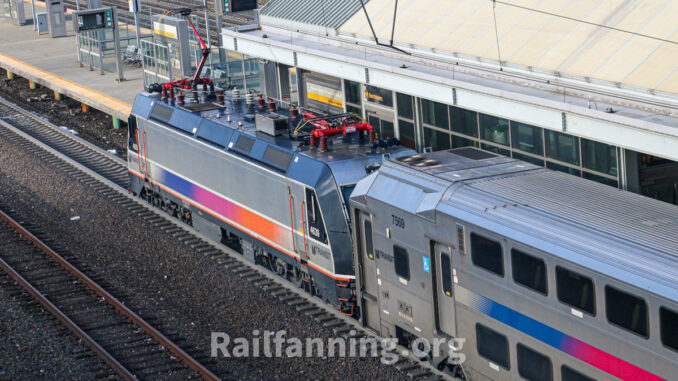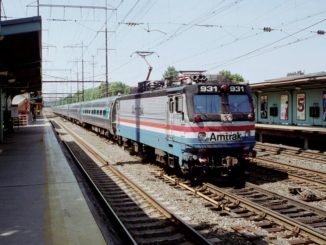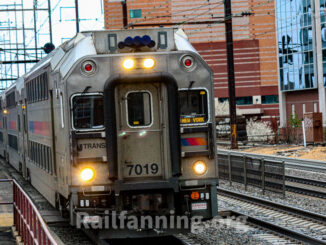
(The Center Square) — New Jersey’s straphangers will be digging deeper into their pockets to pay for bus and train rides after the state’s transit agency approved a double-digit fare increase.
New Jersey Transit’s board of directors on Wednesday unanimously approved a 15% fare increase beginning July 1 for train, light rail and bus service to help whittle down a nearly $1 billion budget shortfall. The transit agency also approved a 3% fare hike for every subsequent year. The last fare hike was in 2015 when they rose by 9%.
Board members defended the fare hikes, arguing that they have been left with few options to close the massive revenue gaps, but acknowledged the impact on people who rely on the public transit system.
“I know there are many, many of our residents who are going to be digging deep into pockets that are nearly empty,” Board member Shanti Narra said in remarks ahead of Wednesday’s vote.
NJ Transit has received billions of dollars in federal pandemic aid, but the agency says those funds are nearly exhausted. Ridership has returned to only 80% of pre-pandemic levels, the agency says, resulting in a nearly $2 billion reduction in fare revenue.
Overall, NJ Transit faces a more than $766 million budget shortfall starting in July 2025. The agency has projected a $119 million deficit in the upcoming year, beginning July 1, and plans to reduce that revenue shortfall with $44 million in cost reductions and $52 million in revenue enhancements. Transit officials say the fare hike is needed to close the remaining gap between expenses and revenues.
“The alternative to filling that budget gap is cutting services,” NJ Transit board member Richard Maroko said. “And I think cutting services really does a disservice to working families in New Jersey.”
NJ Transit officials say the rates of fare increases depend on the service they use and what type of tickets they purchase. For example, a bus fare from Jersey City to Port Authority Bus Terminal will rise from $3.50 to $4, while a train ride from Princeton Junction to New York Penn Station will rise from $16 to $18.40, according to the agency.
Gov. Phil Murphy, a Democrat, has proposed a new corporate transit tax as part of his budget proposal to drum up $800 million annually for NJ Transit and other transportation needs. The tax proposal comes after Murphy and New Jersey lawmakers allowed the state’s corporate business surcharge — which levied a 2.5% surcharge on net profits above $1 million — to lapse at the end of December.
Republican lawmakers blasted the NJ Transit fare hikes as “unacceptable” and said it will make it harder for already financially strapped transit riders to make ends meet.
Senate Minority Leader Anthony Bucco called the transit rate fare hike “an affront to every New Jerseyan struggling to make ends meet” and an example of how Murphy’s “actions don’t match his words” on improving the state’s affordability.
“From escalating gas taxes and increasing highway tolls, to raising taxes on employers and cutting funding to certain school districts, Gov. Murphy and Trenton Democrats have relentlessly betrayed their promise to make New Jersey more affordable – and if that wasn’t bad enough, now they’re price gouging public transit riders,” Bucco said in a statement.
— Christian Wade, The Center Square contributor




